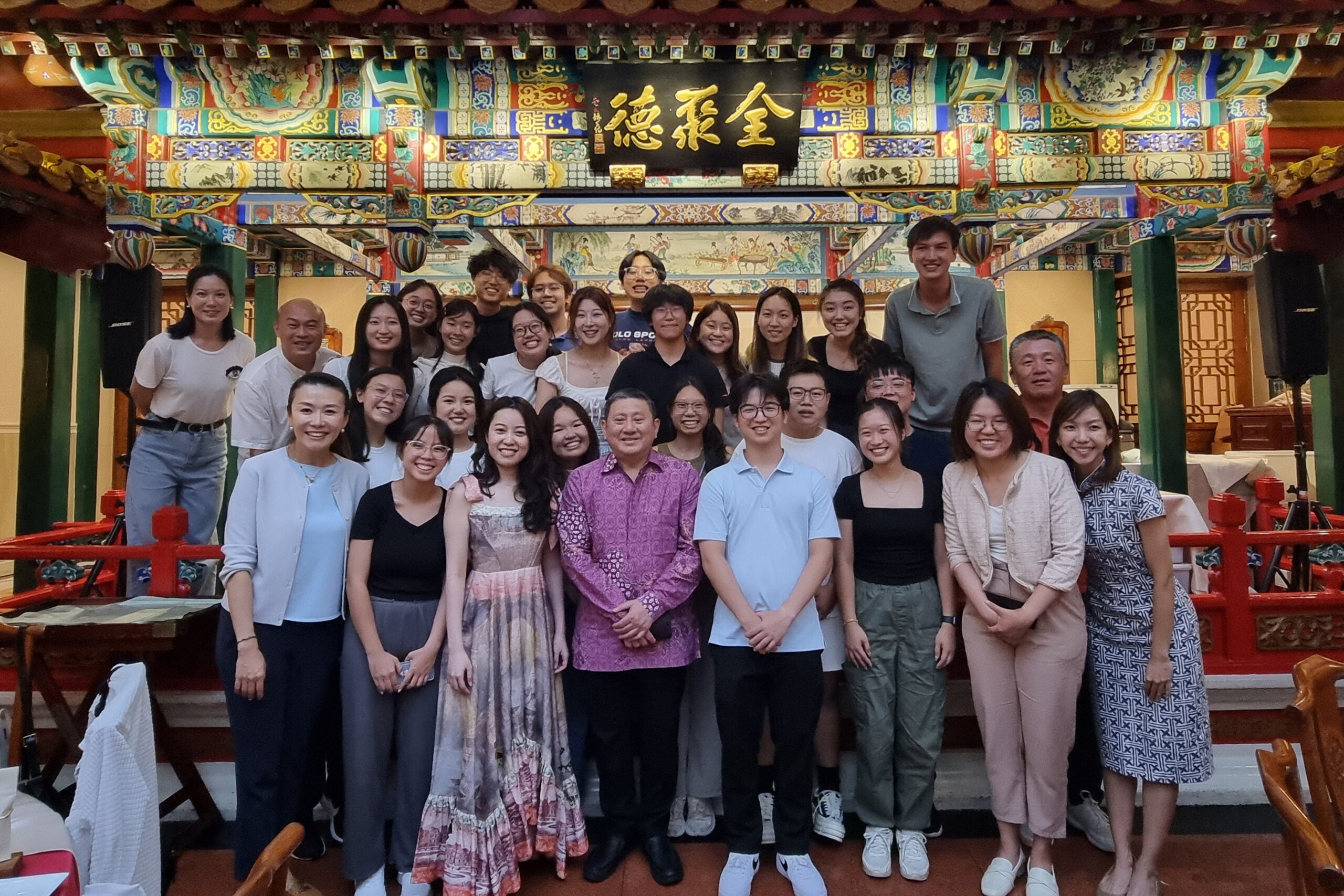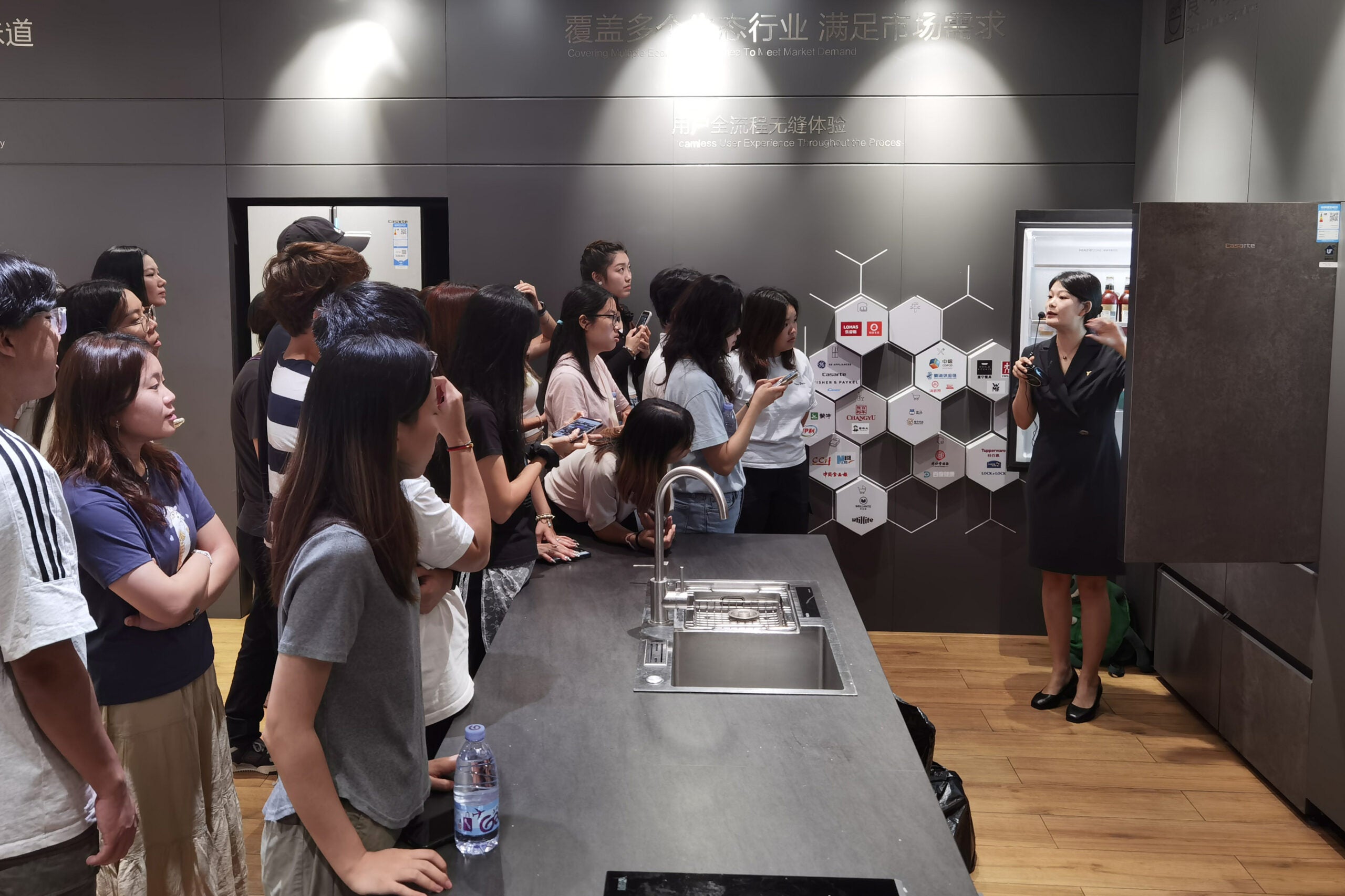The world as classroom
April 23, 2025

China’s unique social, economic, cultural and political context present a complex and intricate network of relationships between various stakeholders in society that has always intrigued Chemistry student Chelsea Wong.
She had the unique opportunity to see China through new eyes during a month-long global experiential course NEX2009: GEx Beijing offered to NUS College (NUSC) students.

The programme theme, “The Chinese Way of Technology”, also resonated with her. The inner workings of Beijing as a smart city were a key focus of the visit, with highlights including a visit to the Beijing High-level Automated Driving Demonstration Area (BJHAD). Here, Chelsea gained a behind-the-scenes glimpse of the complex suite of cloud connectivity, technological and infrastructural innovations, as well as policy systems needed to make autonomous driving a reality.

She says, “My impression of technology was that of systematic machines and software that increase the convenience and efficiency of daily living…I realised that I could be reading all kinds of articles about technology in China, but being here and experiencing the city for myself made these lessons a lot more memorable and powerful.”
Another highlight for her was getting to meet Singaporeans working at the Sino-Singapore Tianjin Eco-City. Through this, Chelsea was reminded of the importance of continuing to maintain Singapore’s relevance on the world stage.
The trip allowed her to better understand what daily life in China is like, experience the sheer scale of the country and interact with people of various backgrounds she would otherwise never have met - from leaders in large conglomerates and state-owned enterprises to university students, researchers and expert practitioners.
A more nuanced understanding of China is the key takeaway for her.

She says, “My previous notions of China were largely shaped by Western popular media. The experience pushed me to evaluate more critically issues like privacy and governance, presented new concepts such as Chinese hospitality and showed me that China from the inside can be very different from what is seen outside.”
For instance, while surveillance in China is often presented in a highly dystopian manner in the media, but her interactions with the locals showed that they did not view surveillance as “bad”. These interactions also presented possible interconnections between ethnic Chinese culture, interactions between state and corporations and the kinds of political control in China.
Skillsets such as thinking critically about what others say about a space or phenomenon, experiencing what daily life in a space can look like and drawing connections between theory and real-world observation are some of the skills that she has developed, which can be applied fairly universally.
Her insights on China and her takeaways relating to the interdependence between state, society, culture and technology are equally applicable in Singapore’s context as Singapore continues to refine its social compact amidst an increasingly complex world.
Chelsea says, “My courses at NUSC are rarely, if ever, Chemistry-related. They have exposed me to different ways of thinking and doing, which will allow me to think more critically and holistically about real-world issues.”

